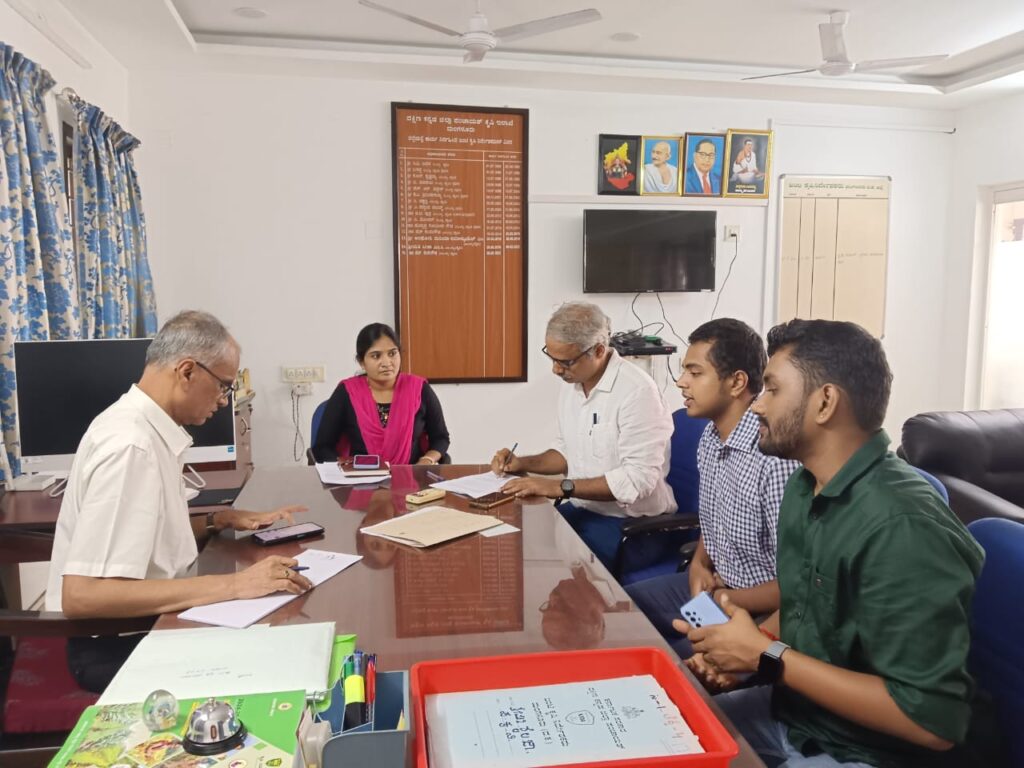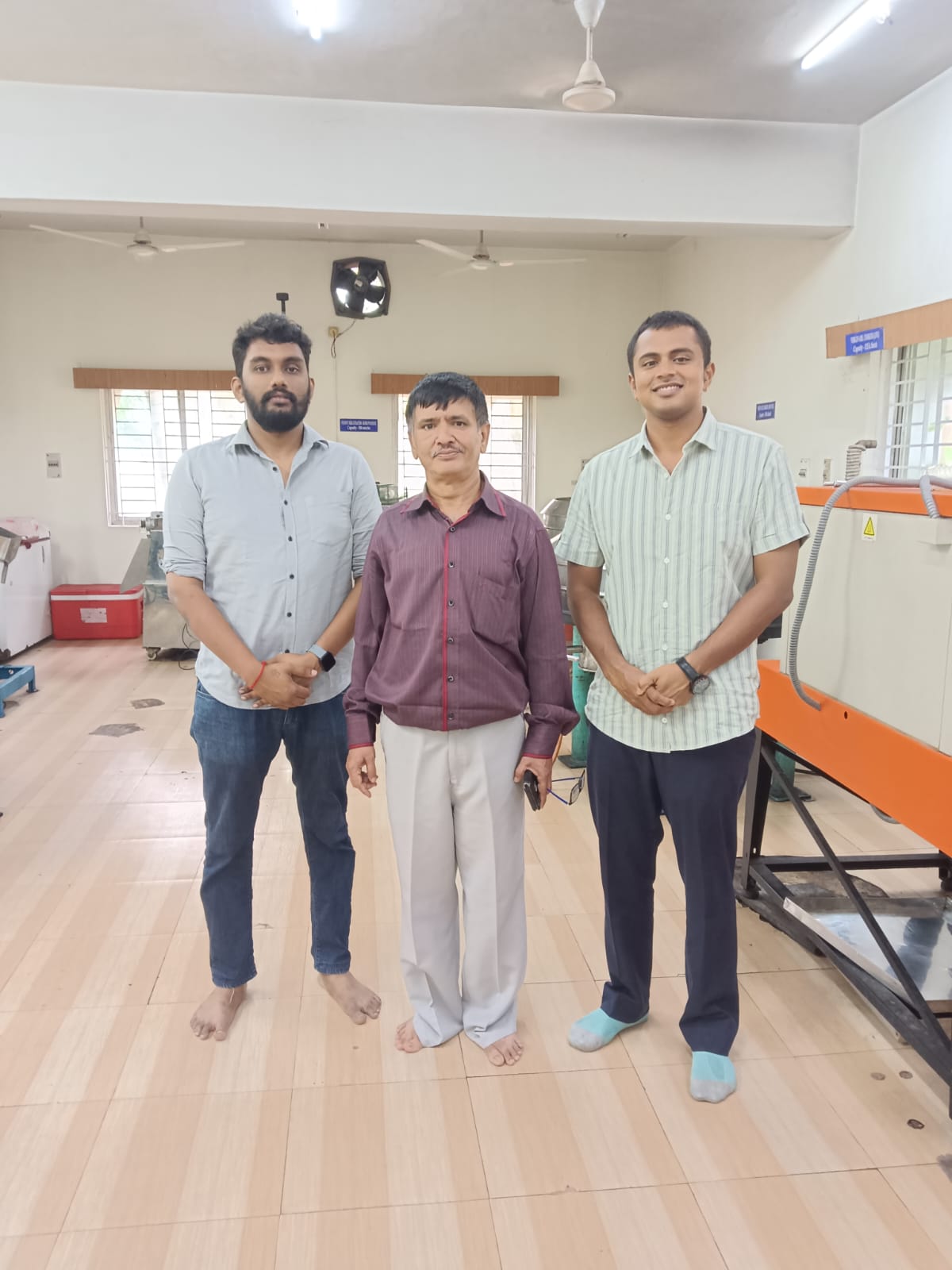
In a series of pivotal meetings aimed at bolstering sustainable agriculture and forest conservation, Mr. Yathish and Dr. Saurish Hegde, founders of the Food Chain Campaign, engaged with key stakeholders to discuss the integration of forests in providing essential resources for agricultural purposes and the latest advancements in food processing technology.
Mr. Yathish and Dr. Saurish Hegde met with the Deputy Director of Forest Conservation at the Public Works Department in Mangalore to emphasize the crucial role forests play in supporting agriculture. The discussions highlighted how forests provide invaluable resources such as soil nutrients, water regulation, and biodiversity, which are essential for sustainable farming practices. The founders stressed the importance of conscious forest conservation to ensure the longevity and health of these natural resources.
Following this, the founders had a productive meeting with Dr. H. Kempegowda, the Joint Director of Agriculture for Dakshina Kannada, also held at the Public Works Department office. The discussion centered on exploring various opportunities, resources, and innovative methods for maximizing the utilization of agricultural lands in Dakshina Kannada. The dialogue aimed at identifying sustainable agricultural practices that can enhance productivity while maintaining ecological balance.
Collaboration with ICAR-Central Plantation Crops Research Institute
In a significant move to promote local technology in food processing, Mr. Yathish and Dr. Saurish Hegde met with scientists from the ICAR-Central Plantation Crops Research Institute (CPCRI) in Kasargod, Kerala. The meeting included discussions with Dr. Hebbar K.B., Director of ICAR-CPCRI, Dr. Vinayaka Hegde, Head of Crop Protection, and Dr. Manikantan M.R., an expert in Post Harvest Technology. The conversations focused on the latest technologies and developments in the food processing and consumption sector.
The Food Chain Campaign advocates for the use of economically sustainable local technology in food processing, aiming to generate revenue and employment. A key objective of the campaign is to foster community participation in the food-growing process by encouraging the youth, aged 18-30, to choose local foods and engage actively in regional farming activities. This initiative is expected to improve food quality and ensure public health.
Conclusion
These meetings mark a significant step forward in integrating sustainable practices in agriculture and food processing. The Food Chain Campaign’s efforts to involve the community, particularly the youth, in sustainable farming and to promote the use of local technology in food processing are set to make a substantial impact on the agricultural landscape of the region. The collaboration with various departments and research institutes underscores the campaign’s commitment to fostering a sustainable and healthy future.



